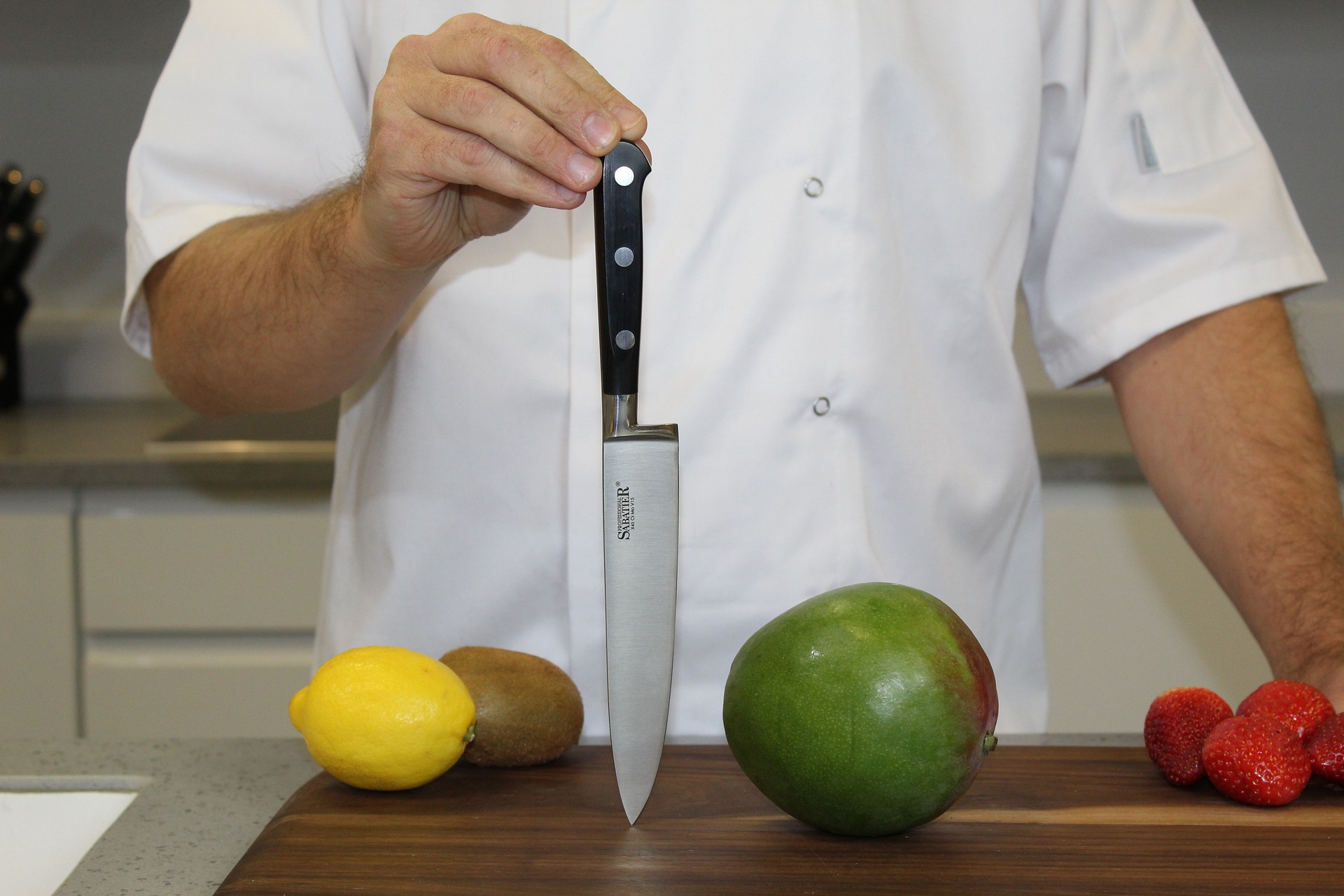With projected utility bills increasing dramatically and the cost of ingredients already eating into margins, hotel owners and hospitality managers are reviewing their costs across the board to find ways to be more cost efficient.
The recruitment costs associated with hiring chefs is one area under scrutiny. Not least because of the lack of qualified chefs and the problem with retention.
Is there a better and more cost efficient way to recruit loyal chefs?
Should you be considering Overseas Chef Recruitment?
Recruiting Chefs
There are four ways to recruit hospitality chefs in the United Kingdom.
- Direct or In House Recruitment.
- Agency Recruitment.
- Recruitment Company.
- Overseas Sponsorship.
All methods have advantages and disadvantages, and it can be difficult to decide which is the best option for your business.
Using a recruitment company or hiring agency chefs has up to now been the most obvious method, but Overseas Sponsorship is proving to be an interesting and viable option for more and more hospitality companies.
Agency Costs Versus Overseas Sponsorship Costs
In today’s business environment the primary consideration is cost when weighing up the implications of recruiting hospitality chefs.
Agency recruitment can be costly, with agencies often taking a percentage of the chef’s salary as commission.
Overseas Sponsorship through the Home Office can also be expensive, as employers are required to pay for the cost of the visa and associated fees. In addition, there are cost implications associated with training and induction for overseas chefs. However, it is important to consider the cost implications in the context of the overall cost of running a hospitality business.
In many cases, the cost of recruiting a chef through sponsoring them through the Home Office can be offset by savings made in other areas of the business.
For example, overseas chefs often have lower wage expectations than UK-based chefs. As such, they can be a cost-effective option for businesses looking to reduce their overall wage bill.
In addition, many overseas chefs are willing to work longer hours and take on additional shifts at short notice. This can help to improve productivity and efficiency in the kitchen, which can lead to cost savings for the business.
Ultimately, the decision of whether to recruit hospitality chefs through an agency or sponsor them through the Home Office will depend on a number of factors, including cost. However, it is important to consider all of the implications before making a decision.
Comparing Chef Recruitment Methods
Direct or In House Recruitment
There are several key ingredients to a successful in-house recruitment process. First, it’s important to have a clear idea of the position you’re looking to fill and the qualifications you’re looking for.
Next, you’ll need to develop a targeted recruitment plan. This may involve placing ads on job boards or recruitment platforms together with social media.
Once you’ve identified some qualified candidates, it’s time to conduct interviews. Be sure to ask each candidate the same set of questions, so that you can fairly compare their answers.
Finally, don’t forget to follow up with references to get feedback from past employers.
By taking these steps, you can be confident that you’re making the best possible hiring decision for your business.
Process
- Write Ad
- Place Ad on recruitment platform
- Sift applicants
- Interview/Trial Shift
- Costs £2,000 (platform and management to time) and the wages say £35k per annum.
Advantages
- Cheaper than agency chefs
- Good fit for kitchen
- Loyalty
Disadvantages
- Escalating wages
- Small pool of candidates
- Management time
- Competitive labour market
Agency Recruitment
Agency recruitment is the most common method of recruiting hospitality chefs in the UK. Agencies will usually have a database of chefs who are looking for work, and they will match you with a chef who is suitable for your business.
The advantage of this method is that it is quick and easy to find a chef who meets your requirements. However, the downside is that you will have to pay the agency a fee, and you may not be able to find a chef who is a perfect match for your business.
Process
- Hospitality business owner approaches agency seeking a CDP
- Agency quotes “All in” cost £22.00 to £26 per hour.
- CDP paid weekly at hourly rate.
- Agency takes the difference to Pay NI and its profit.
- Business owner fills in weekly timesheet for the number of hours worked and sends to the Agency.
- Agency send an invoice to the business owner on a weekly, biweekly or monthly basis
- Agency pays the CDP and deals with tax and National Insurance.
- If the CDP leaves the pub or hotel at any point the business owner does not pay anything other than hours worked.
- If the CDP is unsuitable the business owner has to give 24 hours prior notice to cancel or pay one shift if they want to immediately dismiss them.
- Total costs are weekly circa £1,000 pounds on a 40 hour week or £50k per annum.
Advantages
- Access to resource when no other solution.
- If Agency good then you know quality staff.
Disadvantages
- Expensive – fees to Agency.
- Lack of high quality chefs unless paying premium.
- Chef turnover leads to inconsistency of food offer.
- Kitchen pressure from constantly having to teach.
- Less loyalty.
Recruitment Company
Using a Recruitment Company is often used by restaurants, hotels, and other hospitality businesses to find chefs with the specific skills and experience they need.
One of the advantages of this method is that it gives employers a wider pool of potential candidates to choose from. Additionally, agency recruiters typically have extensive experience in the hospitality industry and know what kind of candidate will be a good fit for each role.
Process
- Call an agent you trust
- Sign and agree to Terms
- Agree job spec
- Receive candidates and trial shift
- Make offer
Advantages
- Fast, efficient, effective
Disadvantages
- Limited pool of candidates
- Expensive if chef moves on after 4 months (agent fees)
Overseas Sponsorship
Overseas Sponsorship through the Home Office is another option for employers looking to hire hospitality chefs.
This method allows businesses to sponsor foreign nationals for work visas if they are unable to find a suitably qualified British citizen to fill the role.
One of the benefits of this approach is that it can help you hire highly skilled and experienced chefs from other countries. Additionally, it can be a less expensive option than agency recruitment.
Process
- Apply for licence.
- Appoint Key Contact, 1st User and Authorising Officer.
- Compile evidence/Submit application.
- Licence Confirmed.
- Log into SMS service to apply for COS (Certificate of Sponsorship), confirm the type of role you need and you can apply for multiple COS at once (they need to be used within 3 months).
- Once COS are approved assign to the individuals.
- Appoint a Recruitment Company who supplies Chefs. They do all the background work in getting the forms and checks done.
- Pay for the COS £1000 per year and £199 Home Office charge.
- COS will show on the system as “Used” once the Home Office use it (Visa appointment not 100% sure).
- Recruitment Company confirm when chef arrives/the flights.
Advantages
- Loyal staff
- Highly skilled staff
- Salary
Disadvantages
- Long and detailed process
Which is the best Chef Recruitment option for you?
If you need to find a chef quickly and easily, then agency recruitment is the best option. However, if you need to find a chef with specific skills and experience, then Overseas Sponsorship really does give you an alternative to seriously consider.
We specialise in helping our clients obtain chefs from overseas recruitment and the Sponsorship Licence and Sponsorship Certificates. If this is a method you’d like to explore, then please get in touch.
Whichever method you choose, make sure that you take the time to compare and contrast the different options before making your final decision.

